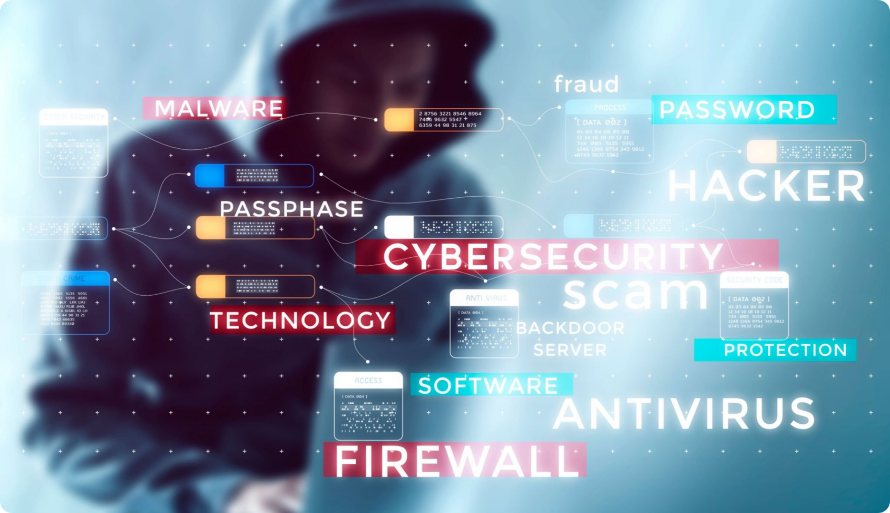Active Directory (AD) from Microsoft is the main way that Windows users are authenticated and allowed to do things. Attackers want to take advantage of weaknesses and get into sensitive data and systems without permission. This makes it a great target for cyberattacks. To stay one step ahead of these threats, you need to be alert and act.
Here are the 10 most common hacks on Microsoft Active Directory and what you can do to protect yourself:
- Password Spraying: This approach tries to break weak passwords by flooding the login system with common passwords for usernames that are known.
Solution:- Strong password policies, minimum length rules, and multi-factor authentication (MFA) for all users should be used to stop this from happening. - Kerberoasting: Attackers get service account hashes with high rights to crack passwords offline.
Solution:- To avoid this, change the passwords for service accounts regularly, turn off service accounts that aren’t needed, and only give the bare minimum of permissions. - Pass-the-Hash: People use stolen versions of passwords to get into other systems without having to know the real password.
Solution:- Stopping: Use multi-factor authentication, set up network segmentation, and keep an eye on any strange behavior in AD. - LLMNR Poisoning: Uses flaws in the Local Loopback Multicast Name Resolution protocol to send people to harmful sites.
Solution:- For protection, turn off LLMNR on domain managers and member servers and use Group Policy Objects (GPOs) to make sure that static DNS assignments are followed.
- Golden Ticket: Attackers take over a Domain Administrator account and make a “golden ticket,” which is a Kerberos ticket that gives the attackers full access to the system. This ticket can be used in the future.
Solution:- To stop this from happening, make sure that privileged accounts have strong passwords, use privileged access management (PAM) tools, and keep an eye on what those accounts are doing. - Silver Ticket: This is like a golden ticket, but it’s made just for one person or service account and gives them a lot of power.
Solution:- Prevention: Take the same steps to stop attacks as with golden tickets and give priority to least privilege access control.

- Spear Phishing: Targeted emails that try to get people to give up private information or click on harmful links.
Solution:- Prevention: Teach your workers about security regularly, use email filtering and anti-phishing tools, and be wary of emails that look sketchy. - Brute Force Attacks: These are attempts to break passwords that are made automatically using lists or software.
Solution:- Prevention: Make sure that users use complex passwords, that their accounts are locked out after a certain number of failed login tries, and that they can log in without a password. - Attacks on the supply chain: Attackers weaken third-party software that Microsoft Active Directory uses to get into the main system through holes in these integrations.
Solution:- Check and patch third-party software carefully, keep an eye on access from outside apps, and think about identity and access management (IAM) solutions as a way to stop attacks. - Insider Threats: Employees who are malicious or don’t know they are a security risk but have permission to access the system can be very dangerous.
Solution:- Background checks, least privilege access, monitoring user behavior, and regular security awareness training are all things that can be done to stop problems before they happen.
Remember that defense is a process with many parts. Taking all of these steps together, keeping up with new risks, and regularly checking your security are all very important for keeping your Microsoft Active Directory fortress safe.
As a bonus, make sure you back up your Microsoft Active Directory often so you can get back online if someone attacks.
You can make your Microsoft Active Directory much safer and keep your company from getting expensive hacks by learning about these common threats and taking steps to stop them.
OR
Consult with an expert for guidance:
A consultation with certified cybersecurity experts can guarantee the successful execution and continuous upkeep of cybersecurity measures.
SmartProfiler empowers you to take control of your cybersecurity future. Stop worrying about vulnerabilities and compliance headaches. Focus on what you do best, knowing your digital walls are firmly in place. Embrace a Culture of Security: Integrate CIS/NIST best practices into your strategy with SmartProfiler.
Contact us today and start building your impregnable digital fortress!
Ayukul Technologies is an Official Channel Partner OF DynamicPacks Technologies.




